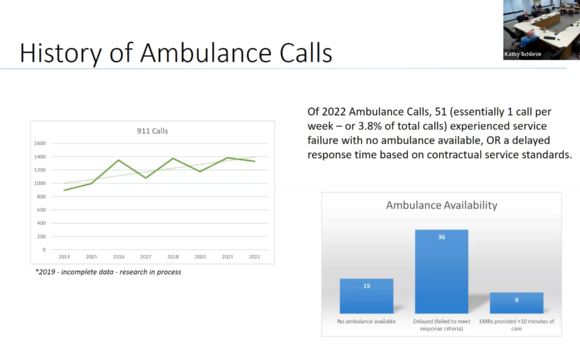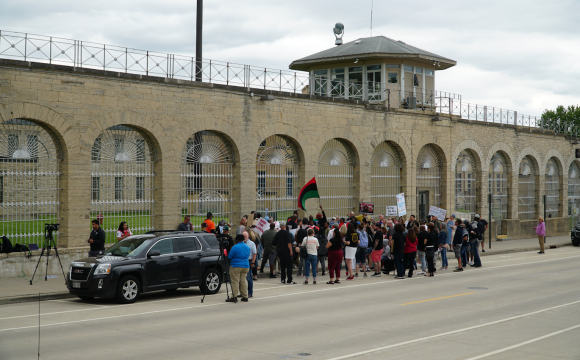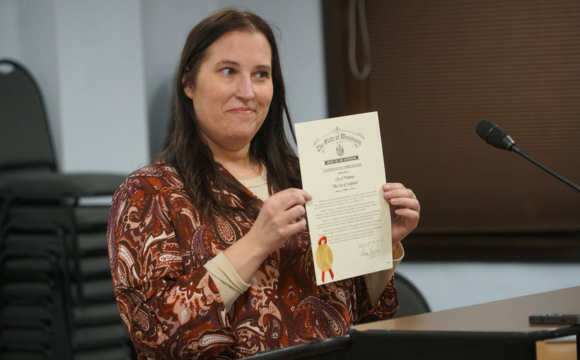WAUPUN — The results of two surveys on recently controversial ordinances were discussed at the City Council meeting Monday night.
The two surveys were regarding the backyard chicken ordinance and the dog leash ordinance. The surveys were opened on July 5 and got 159 responses and 185 responses, respectively. Both surveys had a section for comments from residents if they had specific questions or concerns that they thought the Council should consider.
The backyard chicken ordinance was inspired by a resident who previously had backyard chickens, but was unable to receive a permit this year because she was too late in renewing before it was taken by another household, and the rental property company next door would not sign for permission.
The ordinance currently limits the number of permits to only ten citywide, which the City had discovered was more limiting than any other comparable ordinance in the region.
Results of the backyard chicken survey revealed that a majority of respondents wanted to remove the limit on issued permits, that a plurality of respondents wanted to maintain the number of hens per household at four, and a close to even split between keeping or removing the requirement of getting written permission from neighbors before getting a permit.
Some responses in the extra comments suggested more consistent inspections, minimum land requirements, or eliminating the ordinance altogether.
The Council discussed the numbers of the survey, suggesting compromises between the furthest ends of the questions. The bulk of the conversation revolved around the number of hens, considering the results of the survey. 45% of respondents wanted to keep the number at four, about 25% wanted to increase it to six, and the remaining 30% wanted to increase it to eight. This left 55% in favor of increasing it, while only 45% wanted to maintain the current number.
“My step daughter and her husband live in rural Reeseville and they have three children. They have about ten chickens but one thing that I learned is that they don’t always lay the same amount of eggs continuously,” said Alderman Pete Kaczmarski. “Some days you may get no eggs—the young ones are very weather dependent, and when they get too old they’re done. In that sense, if the number was six, I’d grab two young ones, two medium aged ones, and two older ones to give a more consistent number of eggs.”
Another big issue was about getting permission from neighbors to have backyard chickens. One of the survey results pointed out that residents don’t have to get their neighbor’s permission to get dogs, which in many ways are more disruptive than hens.
The thinking behind that requirement was that neighbors may want to prevent bad smells in the neighborhood, but as long as the homeowners keep the coop clean it usually isn’t a problem. The City also pointed out the initial permit process requires residents to get an inspector for the chicken coop they’ll be keeping the hens in.
City Attorney Dan Vande Zande also pointed out that the intent of the original ordinance was to set guardrails, and that they were expecting constant complaints from neighbors to code enforcement. However, to date there hasn’t been a single complaint to the City related to backyard chickens since passing the original ordinance.
The Council concluded they would remove the limit for permits, remove the requirement for getting permission from neighbors, and increase the number to six hens.
They then moved on to the second survey, related to requiring dog leashes for all dogs outside in city limits.
This survey was caused by an incident in June where a resident was walking their dog when they were attacked by a pitbull that ran out of its owner’s yard. While the City issued the owner a fine and the attacking pitbull was put down, the victim felt that the City did not do enough to prevent the attack from occuring.
The results of the survey found that 55% agreed that animals could be unleashed on private property, 78% agreed that animals needed to be leashed on non-private property, 77% agreed that animals at-large would be immediately sent to the animal shelter if caught, and 67% agreed that the dog park on the north side of town was the only non-private property that animals could be unleashed in.
Many extra comments described issues they have with neighbors who don’t leash their dogs on their property, letting them go into neighboring yards or into the sidewalk/terrace which is a public right of way. 30% of responses to the first question believed that all dogs outside needed to be leashed even on private property, while only 14% were neutral.
The survey did not mention anything about fenced yards.
The Council discussed the language for the ordinance, the requirement of leashes, and whether the current fine is sufficient. City Attorney Vande Zande discussed how the language “under control” doesn’t explicitly require leashes, as many dogs are well trained or use training shock collars, but Alderman Jason Westphal said that he would be more comfortable with explicitly requiring a leash due to many potential issues with shock collars. He also pointed out that it’s much easier to enforce seeing a leash or not than it is for an officer to tell if a dog has a shock collar or is well trained enough.
Under the current ordinance, “no person shall exercise or walk an animal on a leash more than 6 feet in length and of sufficient tensile strength so as to restrain the animal under all circumstances.” This is 8.02(8i) under the City ordinances.
There was also a discussion on whether the City could deny licenses to specific dog breeds, namely pitbulls or other large and aggressive breeds. Alderwoman Kambria Ledesma suggested that the City could also increase the license fee for these types of breeds. This was followed by a discussion about increasing fines for second or third infractions.
Ultimately the Council decided to maintain the leashing ordinance as-is.
Both surveys were discussion items so no action was taken that night. Final updates to the ordinances will be voted on at a future meeting.










